Brewing a Sustainable Future With
Bean-free Coffee : Singapore-based Prefer Coffee
How Prefer’s Innovative Approach to Coffee is Paving the Way for a Greener Future.
14 May 2024
Share this exclusive content from Saladplate
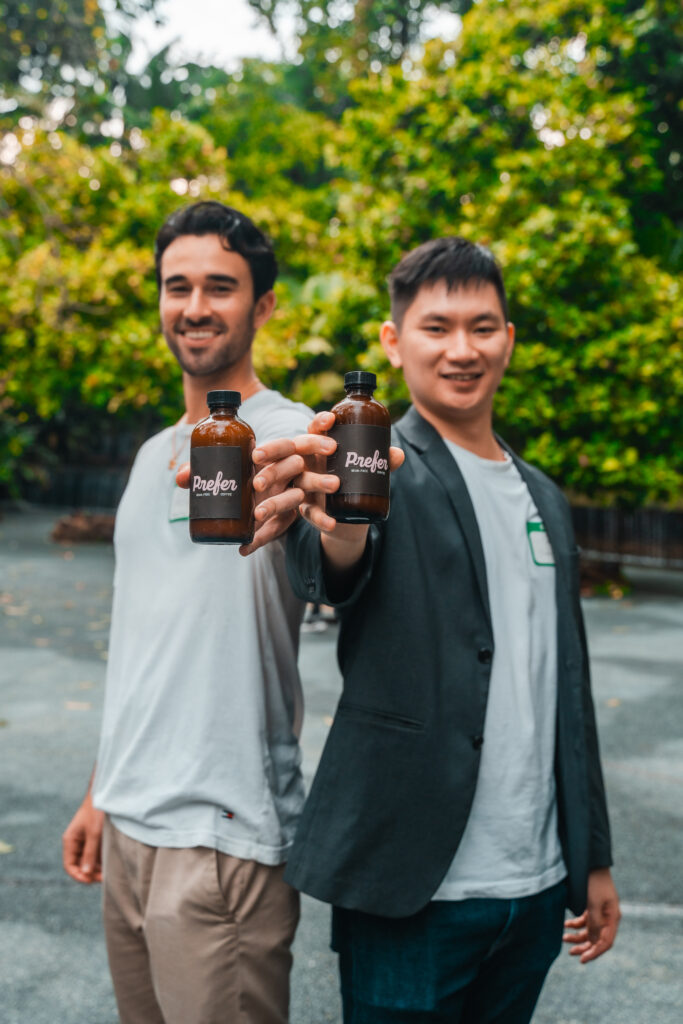
Photo Caption: Founders of Prefer Coffee, Jake Berber and Tan Ding Jie. | Photo credit: Prefer Coffee
In the bustling, coffee-loving city of Singapore, Prefer, a groundbreaking flavours company, is applying innovation, technology, and sustainability to disrupt the traditional coffee scene and steer the beloved culture of coffee-drinking toward a more sustainable future.
Founded by former neuroscientist Jake Berber and food scientist Tan Ding Jie, the duo first connected at Entrepreneur First, a food accelerator program where their shared love for fermentation biotechnology led them to identify coffee – a climate-threatened crop – as a prime candidate for innovation. By applying their expertise to day-old bread, soy pulp, and spent barley grains with carefully selected microbes, they created Prefer, Asia’s first bean-free coffee.
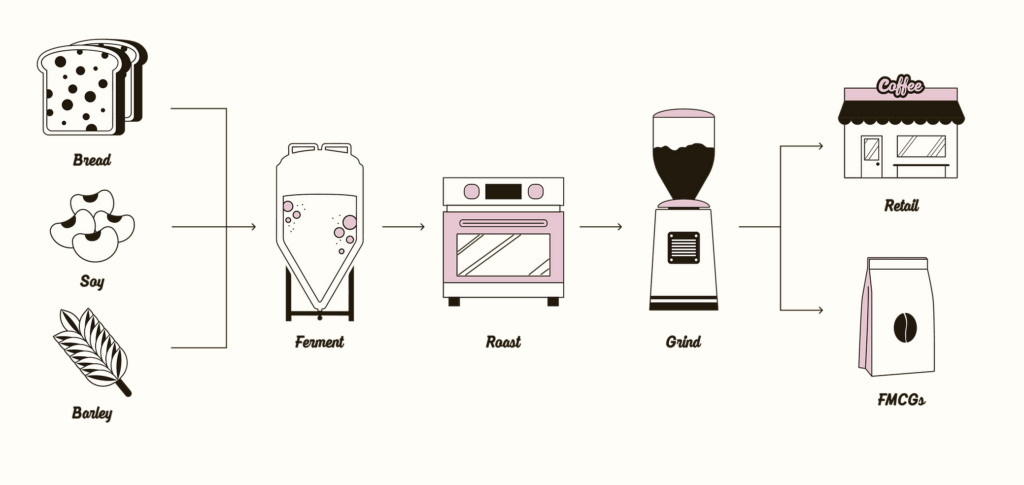
Photo caption: Process of making bean-free coffee. | Photo credit: Prefer Coffee
From Raw Ingredients to Brew
“These seemingly ordinary ingredients, when subjected to specific fermentation processes with carefully selected microbes, unlock a treasure trove of aromatic compounds remarkably similar to those found in coffee beans,” shared Jake Berber, co-founder of Prefer. “This bioconversion process essentially mimics the natural flavour that occurs in coffee, allowing us to achieve a delicious coffee experience without relying on traditional beans.”
The entire process, from ingredients to brew, not only allows Prefer to sidestep the need for coffee plantations but also significantly reduces the carbon footprint associated with traditional coffee production, minimising the environmental impact across the entire value chain, from sourcing to production. “The fermentation process requires significantly less land and water compared to conventional coffee farming,” Jake noted. For instance, the water footprint of conventional coffee is 140 litres per cup, whereas Prefer’s coffee grounds take just two days to blend, ferment, and roast, unlike the six to nine-month harvest time for regular coffee.
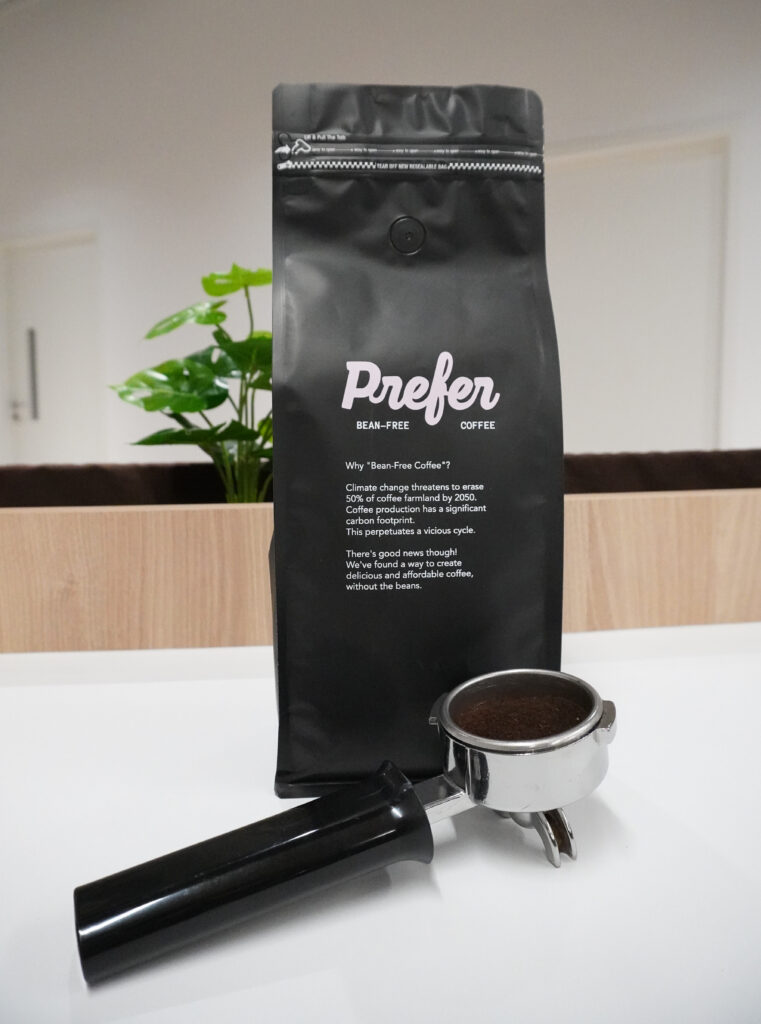
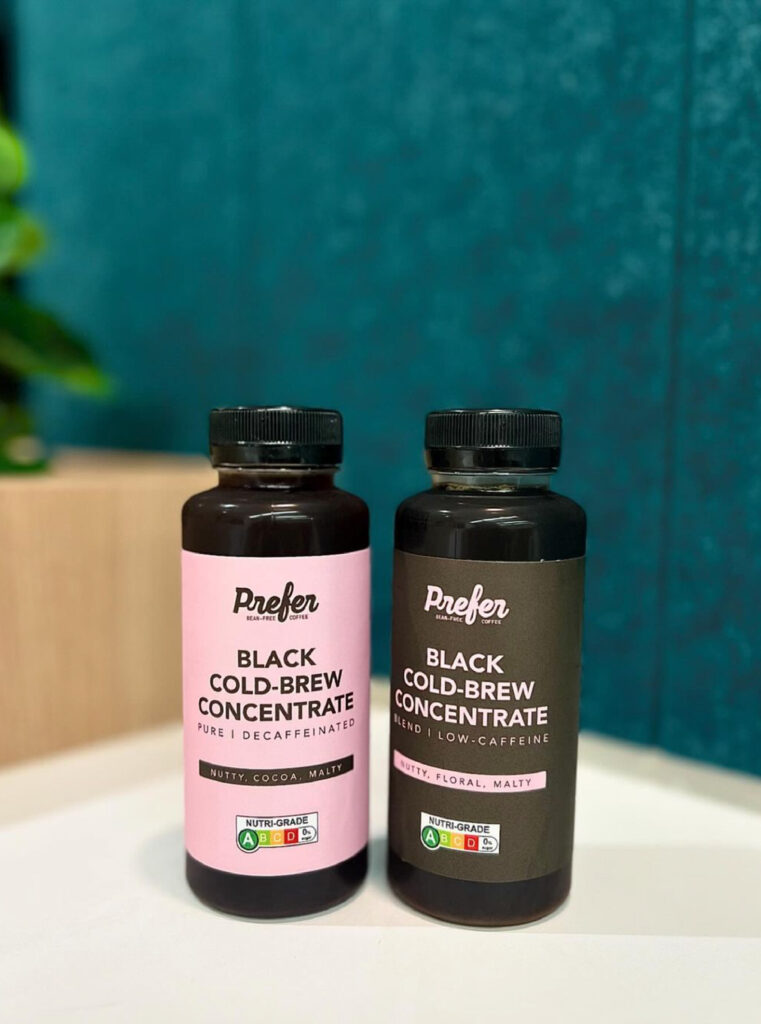
Photo caption: Prefer coffee grounds.
Photo caption: Prefer Black Cold Brew Concentrate. | Photo credit: Prefer Coffee
The reception to Prefer’s bean-free coffee in Singapore has been encouraging and is growing, according to Jake. “While some consumers prioritise the traditional coffee taste, a growing number appreciate the sustainable aspects of our product,” he said. Brewed like real coffee, with enough crema to make latte art, their Arabica espresso boasts a nutty, fragrant aroma and a hint of earthy bitterness. While the beans come caffeine-free, Prefer adds caffeine powder derived from tea, which can be adjusted for preferred caffeine levels.
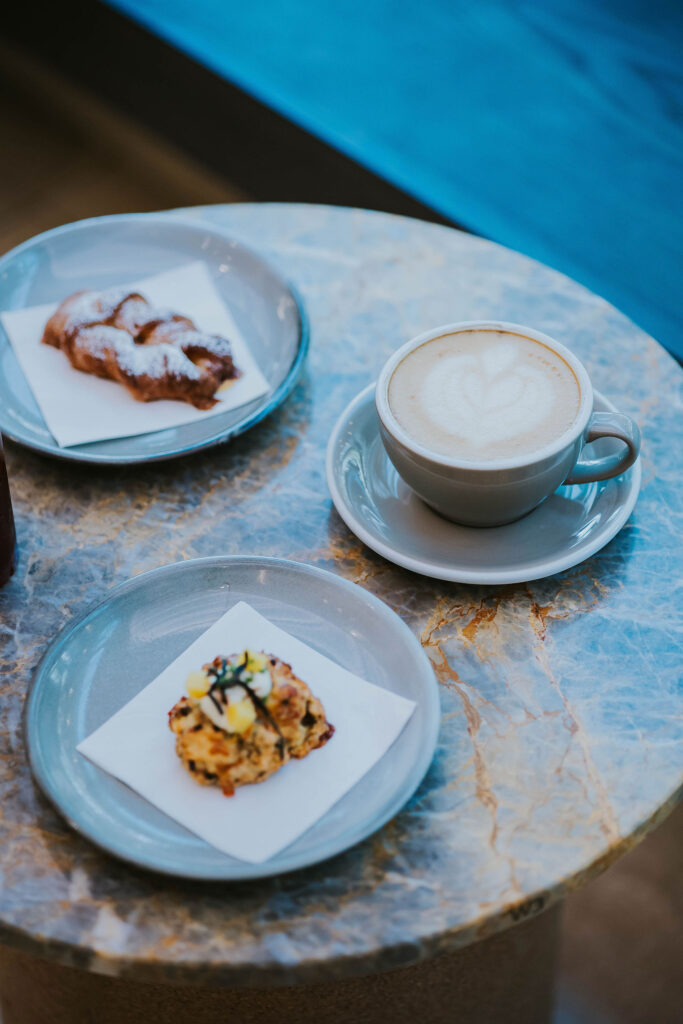
Photo caption: Latte made with Prefer coffee grounds. | Photo credit: Prefer Coffee
Looking Ahead
In February 2024, Prefer announced it raised US$2 million (S$2.68 million) in funding to scale up production and grow its team. Currently available at 14 food and beverage outlets across Singapore, the company is looking to expand its operations beyond Singapore through partnerships with cafes, hotels, and distributors in Southeast Asian markets, all while keeping a close eye on their environmental impact. “Firstly, by locally sourcing ingredients, we minimise transportation emissions associated with byproduct acquisition. Secondly, we are actively exploring renewable energy sources to power our fermentation facilities. Finally, we are constantly evaluating ways to further utilise any remaining byproducts from our process, striving for a true zero-waste operation,” Jake explained.
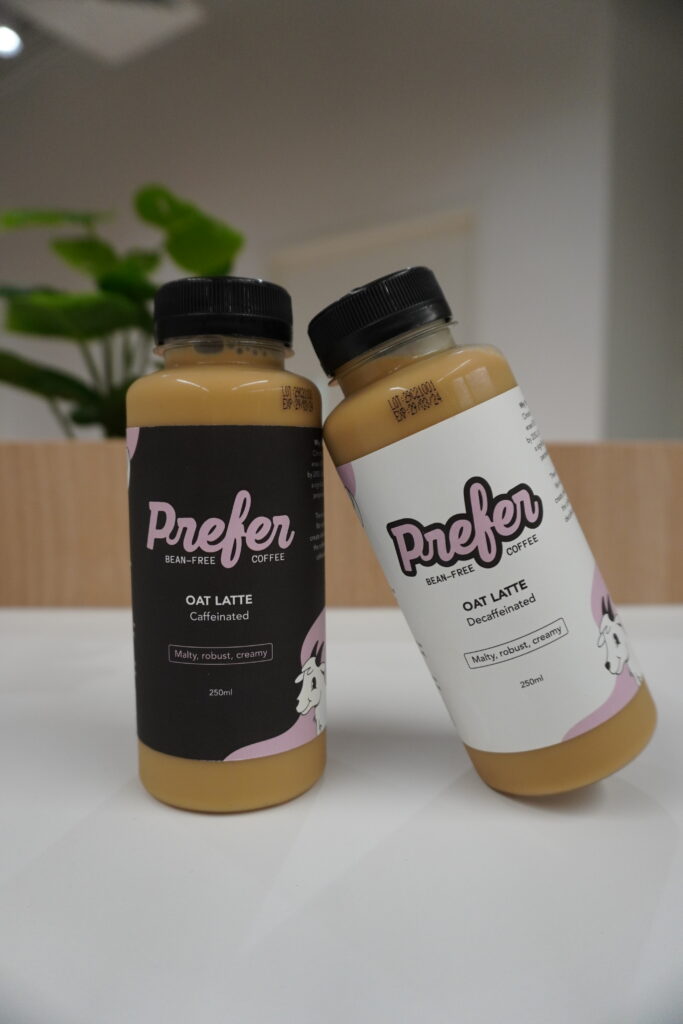
Photo caption: Prefer Oat Milk Latte. | Photo credit: Prefer Coffee
But Prefer’s ambitions don’t stop at coffee. The company is set to explore the broader potential of flavours, targeting crops like cocoa, vanilla, and citrus that are susceptible to the impacts of climate change. “By reducing our dependence on traditional agriculture, we can significantly lessen the environmental impact of large-scale farming practices. Bioflavors offer a crucial solution for ensuring food security by providing alternative sources for flavours threatened by climate change, opening doors to entirely new flavour profiles, fostering innovation, and exciting possibilities for the future of food experiences,” said Jake.
Over the next decade, Prefer envisions itself at the forefront of the global flavour market by developing sustainable and scalable alternatives to traditional flavours and ultimately contributing to a more sustainable food system that minimises the environmental impact of food production. But for now, by marrying the art of coffee-making with the science of biochemistry, Prefer is not just offering a new kind of coffee but helping to craft a better, more sustainable future for the planet one delicious cup at a time.
Author: Charlene Fang
Charlene Fang is a US-based writer, editor and content strategist. Originally from Singapore, she writes for lifestyle and travel publications such as Condé Nast Traveler, AFAR, Forbes Travel Guide and Louis Vuitton Guides and was previously an editor at CNNGO and Time Out. View her portfolio at www.charlenefang.co



